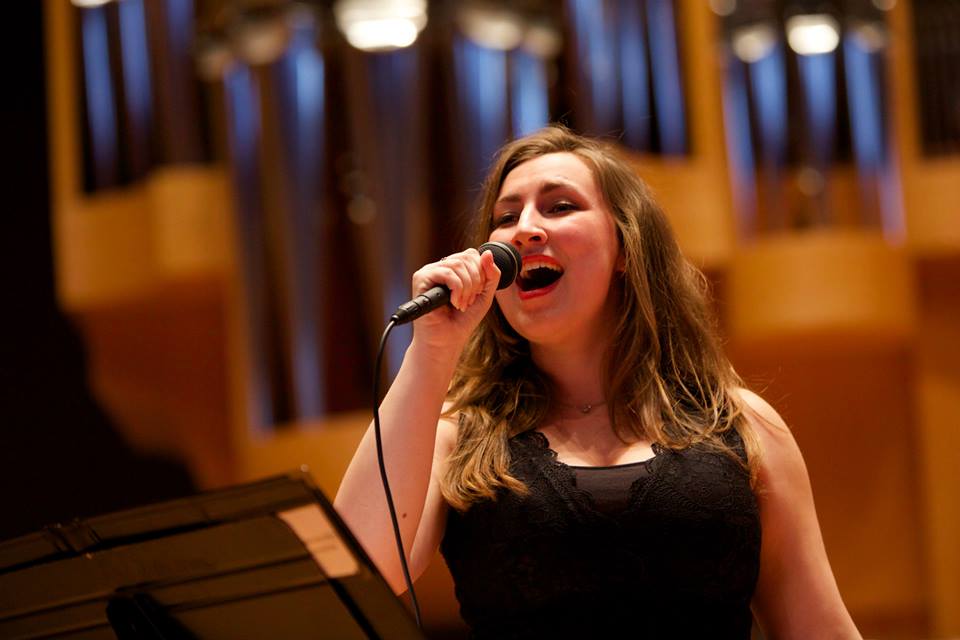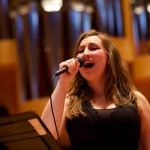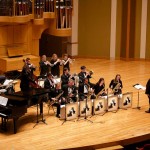Hal Melia, an assistant performing arts professor at Central State University, knows a thing or two about jazz music.
He plays eleven different instruments, including four distinct varieties of saxophone and four different kinds of clarinets, as well the flute, piccolo and an electronic wind instrument.
Melia performed with an Ohio Wesleyan student ensemble last year, but this was his first appearance at Gray Chapel.
Student members of the Park Avenue Jazz Ensemble, along with Melia, performed several jazz selections under the direction of OWU professor of music, Larry Griffin. The band “enjoyed him so much that I promised them I would bring him back,” Griffin said.
The Park Avenue Jazz ensemble is named for a church in Minneapolis that Griffin was affiliated with before he began teaching at the college level twenty-eight years ago.
“(The church) was a very special place for me and whenever I have a jazz ensemble I like to name it Park Avenue,” Griffin said.
The jazz ensemble consisted of Ohio Wesleyan students with the exceptions of Dave McMahon on piano, Luke Berger as percussionistand featured guest Melia on Alto Saxophone.
The first half of the program consisted of instrumental pieces including “Uptown Downbeat,” “Chinoiserie,” “Dissonance in Blues,” “Teri” and “Everlasting.” The latter showcased Melia’s saxophone skills.
Following intermission, junior Hannah Snapp took the stage. She added vocals to the song “At Last,” which was originally written for the musical film, “Orchestra Wives” but was made famous by late jazz singer Etta James. Snapp also performed vocals for “Cry Me a River,” a song popularized by blues singer Ella Fitzgerald.
In addition, she lent her voice to “Corcovado,” and “Take the A Train.” Griffin described Snapp’s vocal range as between an alto and mezzo-soprano. In response, Snapp joked, “It depends on the day.”
Audience member, sophomore Daniel Ortega said, “I thought it was really good with Hannah Snapp how she was singing.”
Ortega said his favorite piece of the performance was “Corcovado,” sung by Snapp in both Portuguese and English.
“I thought it was interesting,” he said.



